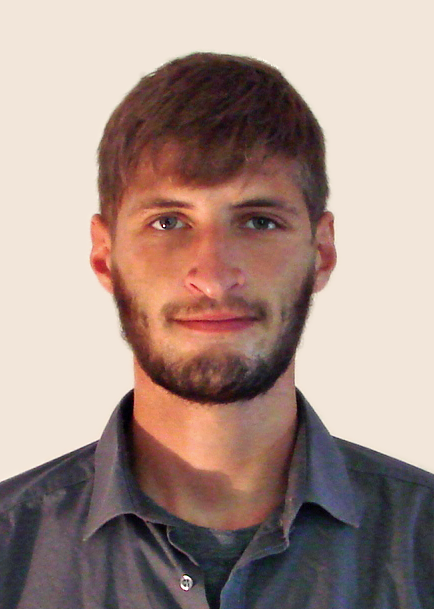
Simon Leischnig
Autonomous Systems Master Student at TU Darmstadt
Tel. 01590 / 5077 303
simon.leischnig@stud.tu-darmstadt.de
"simlei" is my github account, http://simlei.github.io/hi is my public website
Education
2016-
Technische Universität Darmstadt MSc Autonomous Systems, Informatics
2015-16
Universidad Politécnica de Valencia School of Informatics
2013-15
Technische Universität Darmstadt MSc Autonomous Systems, Informatics
2009-13
Technische Universität Darmstadt BSc Informatics
Thesis: Adaptris-Tetris with dynamic difficulty as implementation of the ISA algorithm
2008
Carl-Zeiss-Gymnasium Jena Highschool
Work experience
2014, 17 TU Darmstadt
Research assistant:
2017 (current) Project organisation and management under Dr. Eichberg
2014: Recommender systems lab under Prof. Brefeld
2009-15
Cynops GmbH Software developer, Cryptography and Security
2013-14
Lufthansa Freelance work, mobile applications
2007-08
Eset Germany, Deutsche Bank Internships (two months each)
Publications
2017
Kroemer, O.; Leischnig, S.; Luettgen, S.; Peters, J.; A Kernel-based Approach to Learning
Contact Distributions for Robot Manipulation Tasks, Autonomous Robots (AuRo)
(current, accepted)
2015
Leischnig, S.; Luettgen, S.; Kroemer, O.; Peters, J.; A Comparison of Contact Distribution
Representations for Learning to Predict Object Interactions, IEEE-RAS International
Conference on Humanoid Robots (Humanoids)
Technical skills
- Java, Scala, scalaz
- Python
- C++
- GUI: Java SWT, JavaFX
- OSGi, Eclipse RCP
- Statistics
- Machine learning
- Computer vision
- Cryptography
- Git
- UNIX
- Ammonite Shell scripting
- LaTeX
- Markdown, HTML and CSS
- Javascript, Typescript
Active Projects
JCrypTool
I have contributed regularly to the JCrypTool open source project since I graduated from Highschool. I take care of GUI and core programming, project management and documentation. It is a huge Eclipse Rich Client Platform project with over 100 plug-ins that provide cryptography functionality and visualizations, and I am proud to be a part of it.
My current project there is to integrate the Bouncy Castle crypto provider library into this Java based project. The core of it is built with Scala and uses a Domain Specific Language to provide generic GUI and console functionality. The long-term plan is to base more and more of the core implementation on the Shapeless and functional lenses and weave it into the Ammonite REPL. Far goal is to utilize Lightweight modular staging to give it the potential to be viable in performance-critical settings. As a modelling stretch-goal, I plan to ultimatively make the DSL use Free Applicatives (from category theory) to base it on firm theoretical ground.
USB guitar
I chose to follow up on a long-hedged passion during a Virtual and Augmented Reality class: to connect music and computing. Using an Arduino, we modified an old Western guitar such that it can be plugged into a computer via USB. The fingering position of the fretboard can then be inferred on the computer in real-time (with limitations).
As a proof-of-concept, we implemented a basic guitar teacher application. The position of the guitar is determined from a webcam feed with marker-based computer vision methods. Together with the fingering information from the USB guitar, it viualizes chords and scale information directly on the guitar fretboard in the video feed. This app utilizes OpenCV marker tracking and OpenGL through integration with Openframeworks. Extensive project log: simlei.github.io/VAR2017Project.
Languages
German (native)
English (fluent, C1/C2)
Spanish (advanced, B2)